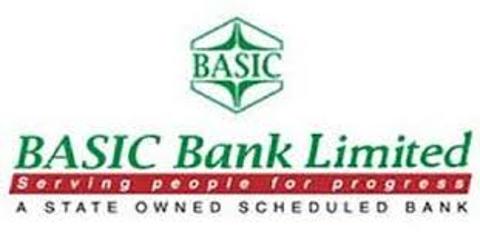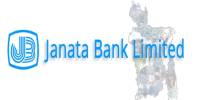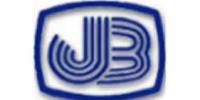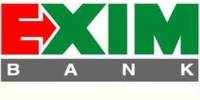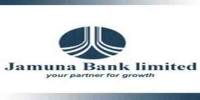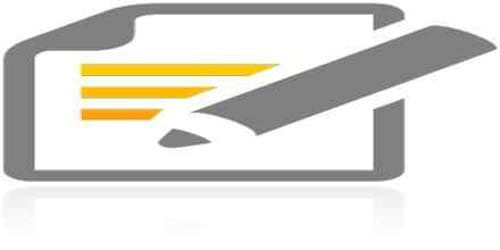This report focuses on the Analysis of Foreign Exchange Banking Services of BASIC Bank Limited. This report gives a clear idea while dealings with foreign exchange banking to understand how the services are rendered. Other objectives are to identify the documents used in the foreign trade of BASIC Bank and appraise the export, import, and remittance of the bank. Finally, identify problems of foreign exchange banking of the selected bank and suggest suggestions for improvement of foreign banking of the bank.
Background of The Study
Any academic course of the study has great value when it has practical application in the real life. Only a lot of theoretical knowledge will be a little important unless it is applicable in practical life. So we need the proper application of our knowledge to get some benefit from our theoretical knowledge to make it more fruitful when we engage ourselves in such field to make proper use of our theoretical knowledge in our practical life, only then do we come to know about the benefit of the theoretical knowledge. Such an application is made possible through an internship. When theoretical knowledge is obtained from a course of study it is only half of the subject matter. Internship implies the full application of the methods and procedures through rich acquired knowledge of subject matter can be fruitfully applied in our daily life. Such a procedure of practical application is known as an internship. The case study is titled “Analysis of Foreign Exchange Banking Services of The BASIC Bank Limited”.
OBJECTIVES OF THE STUDY
(i) Main Objectives:
- The main objective of the study is to highlight the major documents used by BASIC Bank Ltd. While dealings with foreign exchange banking to understand how the services are rendered.
(ii) Specific Objectives:
- To identify the documents used in the foreign trade of BASIC Bank Ltd.
- To appraise export, import & remittance of the same bank.
- To identify problems of foreign exchange banking of the selected bank.
- To suggest suggestions for improvement of foreign banking of the given bank.
Major features of these branches are:
- Fully computerized accounts maintenance.
- Well decorated air-conditioned facilities.
- A fully operational computer network which is currently being implemented. The work of Local Area Network (LAN) and Wide Area Network (WAN) installation having reliable and secured communication between the branches and the Head Office is in progress to facilitate any Branch Banking and ATM Services.
- Money counting machines for making cash transactions easy and prompt.
- Fifteen out of twenty-six branches are authorized dealers of foreign exchange. This facilitates speedy disposal of the transaction of export and import trade.
Human Resources
BASIC Bank Limited has a well-diversified pool of human resources which is composed of people with high academic backgrounds. Also, there is a positive demographic characteristic – most employees are comparatively young in age yet mature inexperience. As of December 2003, the total employee strength is 523. The strength is 435 excluding the menial staff. BASIC Bank Limited has been investing its resources with a view to developing an efficient and professional workforce. Two approaches are mainly used in this regard.
Activities:
A. Industrial Credit
| Million Taka | |
| 1997 | 1408.25 |
| 1998 | 2028.50 |
| 1999 | 2062.19 |
| 2000 | 2735.50 |
| 2001 | 3769.00 |
| 2002 | 2735.50 |
| 2003 | 6252.00 |
| 2004 | 7691.20 |
| 2005 | 9987.50 |
| 2006 | 12243.56 |
| 2007 | 13901.40 |
| 2008 | 17226.40 |
BASIC Bank’s services are directed towards entrepreneurs in the small industries sector. A small industry, as per Industrial policy 1999 approved by the Cabinet, has been defined as an industrial undertaking whose total fixed investment is less than Tk.100 million.
The industrial loan reflected a significant growth of 23.91 percent over the previous year. Total outstanding industrial loans including term and working capital stood at Taka 17,226.40 million at the end of 2008 compared to Taka 13,901.40 million in 2007. Total outstanding term loan stood at Taka 6,206.75 million as of December 31, 2008, compared to Taka 5,055.58 million in 2007 reflecting a growth of 22.77 percent. The outstanding working capital finance extended to industrial units stood at Taka 11,784.08 million at the end of the reporting period compared to Taka 9,525.98 million in 2007. The growth rate here was 23.70 percent. BASIC Bank’s services are especially directed towards the promotion and development of small industries. Its exposure to the small and medium industries sector accounted for 56.52 percent of the total loans and advances. During the year total of 87 projects were sanctioned term loans. Out of which 26 were new and the rest were under BMRE of the existing projects. As of 31 December 2008, 801 projects were in the portfolio of the bank. The textile sector including garments being one of the major contributors to a national economy dominated the loan portfolio of the Bank. Other sectors financed include engineering; food and allied industries; chemicals, pharmaceuticals, and allied industries; paper, board, printing, and packaging; glass; ceramic; and other non-metallic goods and jute products. The recovery rate of the project loans was 90.81 percent.
B. Commercial Credit:
The Bank also supports the development of trade, business, and other commercial activities in the country. It covers the full range of services to the exporters and importers extending various facilities such as cash credit, export cash credit, packing credit, short-term loans, local and foreign bills purchase facilities. As of December 31, 2008, total outstanding commercial loans stood at Taka 9,278.26 million Compared to Taka 7,681.74 million in 2007.
(Source: Annual Report 2008, BASIC Bank Ltd.)
C. Micro-Credit:
BASIC Bank launched a Micro Credit Scheme in 1994. Micro Credit Scheme provides for the poor for the generation of employment and income on a sustainable basis, particularly in urban and suburban areas. The Bank follows three systems of credit delivery. These are:
- Lending to the NGOs who on-lend to their members. At present, there are 15 such NGOs.
- Lending directly to the target groups or ultimate borrowers under the Bank’s own management.
- Lending directly to the member-borrowers and NGOs providing nonfinancial services like group formation and monitoring and supervision in exchange for a supervision fee.
At the end of 2008, the total amount of Taka 764.46 million remained outstanding as against Taka 680.13 million in 2007. The recovery rate during this period remained at a satisfactory level of 98.00 percent.
(source: Annual Report 2007, BASIC Bank Ltd.)
Foreign Trade:
The bank achieved substantial growth in export in 2008 and the performance of the bank in import business was also satisfactory. The Bank handled the total export business of Taka 27,359.77 million and the import business of Taka 22,270.87 million in 2008. The export and import business grew by 28.65 percent and 32.60 percent respectively. Major items of exports were garments, jute products, textiles, leather, etc. Items of import included mainly industrial raw materials, garments accessories, capital machinery, food items, and other essential commodities.
The Bank becomes a proud member of SWIFT (Society for Worldwide Interbank Financial Telecommunication) that would pave the way to achieving uninterrupted communication related to banking for international trade business and fund transfer.
Credit Rating
BASIC Bank Limited
Credit Rating Report (Entity Rating)
| Year | Long Term | Short Term |
| 2008 | AA-1 | ST-1 |
Credit Rating Information and Services Limited (CRISL) has assigned AA- (pronounced as a double-A minus) rating in the long term and ST-1 rating in the short term to the Bank for the year 2008
Banks rated AA- in the long term are adjudged to be of high quality, offer higher safety, and have high credit quality. This level of rating indicates a corporate entity with a sound credit profile and without significant problems. Risks are modest and may vary slightly from time to time because of economic conditions Banks rated ST-1 in the short term are considered as the highest certainty of timely payment. Short-term liquidity including internal fund generation is very strong and access to alternative sources of funds is outstanding. Safety is almost like risk-free Government short-term obligations
GENERAL BANKING
General banking is the starting point of all banking operations. It is the department, which provides day-to-day services to the customers Main Functions of the general banking department are the followings:
- Accounts Opening Section
- Accounts Section.
- Local Remittance Section
- Collection And Clearing
- Cash Section
ACCOUNTS OPENING SECTION
ACCEPTING DEPOSIT
The bank is a financial intermediary, which mobilizes funds from the surplus units and allocates it to the deficit units. Surplus unit means the people who have surplus money and willingness to save. Deficit unit means the people who need money for industry, trade, business, or for personal use but don’t have sufficient money of their own for such purposes. Bank mobilizes the fund by accepting deposits from depositors and allocates the fund by providing loans to borrowers.
The banker-customer relationship begins with the opening of an account by the customer. The opening of an account binds the same into a contractual relationship. But the selection of customers is very crucial. In fact, fraud and forgery of all kinds start with the opening of an account by the customer (s). So, the bank takes extra care in its selection. One of the basic functions of commercial banks is to accept deposits. For accepting deposits both demand and time, BASIC Bank (Shanti Nagar Branch) offers the following types of accounts-
TYPES OF ACCOUNTS WITH TERMS AND CONDITIONS
This part covers only the following types of accounts-
- Savings Bank Account
- Current Account
- Short Term Deposit (STD) Account
SAVINGS BANK ACCOUNT
This deposit is primarily for small-scale savers. Hence, there is a restriction on withdrawals in a week. Heavy withdrawals are permitted only against prior notice. Some Important Points are as follows-
GENERAL CHARACTERISTICS
As per BB instruction, 90% of SB deposits are treated as time liability and 10% of it as demand liability
a. Minimum opening deposit of 5000/= is required;
Interest is paid on this account. BASIC offers a reasonable rate of interest for SB A/C.
c. Generally, banks require a 7-day prior notice if the total amount of one or more withdrawals on any date exceeds 25% of the balance of the account unless is given.
d. The number of withdrawals over a period of time is limited. Only two withdrawals are permitted per week. If there are more than two withdrawals are made in a week, no interest will be paid on the rest amount for that month.
e. Generally householders, individuals, and other small-scale savers are the clients of this account.
CURRENT ACCOUNT
The current account is purely a demand deposit account. There is no restriction on withdrawing money from the account. It is basically justified when funds are to be collected and money is to be paid at frequent intervals. It is most suitable for private individuals, traders, merchants, importers and exporters, mill and factory owners, limited companies, etc. Some Important Characteristics are as follows-
a. A minimum balance of TK.5000 has to be maintained.
b. CD accounts are unproductive in nature as banks loanable fund is concerned. Sufficient fund has to be kept in liquid form, as current deposits are demand liability.
c. Thus huge portion of this fund becomes non-performing. For this reason, banks do not pay any interest to CD Accountholders.
d. There is no restriction on the number and the number of withdrawals from a current account.
STD (SHORT TERM DEPOSIT) ACCOUNT
Normally various big companies, organizations, Government Departments keep money in the STD account. Frequent withdrawal is discouraged and requires prior notice. In BASIC, customers usually give an instruction that their current account will be debited whenever its deposited amount crosses a certain limit and this amount will be transferred to the STD account
COMMON FORMALITIES REQUIRED FOR EVERY ACCOUNT
- Duly filled up the Account Opening Form.
- Introducer’s signature on Account Opening Form to be verified by the Manager under the full signature.
- Two copies of passport size photograph of account opener(s) duly attested by the introducer.
ACCOUNTS SECTION
The accounts department maintains all records of transactions and all types of statements. At the end of transaction hour, all concerned section sends vouchers of transactions to this department. The accounts department compares all figures/amounts, contents of transactions with supplementary statements prepared by computer. If any discrepancy arises regarding any transaction then this department reports to the concerned department. The following are the activities of the accounts department:
- To record all transactions in the cash book.
- To record all transactions in the cash book.
- To prepare daily, weekly, monthly, half-yearly, and yearly fund positions.
- To prepare all kinds of statements related to Bangladesh Bank, Head office, and National Board of Revenue (NBR).
- To prepare monthly salary statements, provident fund statements, and administrative expenditure statements.
- To make charges for different types of duty.
LOCAL REMITTANCE SECTION
Cash remitting from one place to another is risky. So, Banks remit funds on behalf of the customer (s) to save them from any awkward happening through the network of their branches. There are three modes of remitting funds. These are–
- Pay Order (PO)
- Demand draft (DD)
- Telegraphic Transfer (TT)
- Call Deposit Receipt (CDR).
PAY ORDER (PO)
A pay order is an instrument, used to remit funds within a clearing zone. Unlike cheque, there is no possibility of dishonoring the PO. The PO can only be encashed through the branch that has issued the instrument.
PAY ORDER ISSUING PROCESS
For issuing a PO, the following formalities are to be maintained. These are-
- Duly filled up the application form by the customer.
- Deposit money either in cash or by cheque with necessary changes.
- Prepare the instrument and make necessary entries in the Bills Payable Register where the payee’s name, date, PO no. etc are noted.
- Deliver the instrument to the customer after scrutinized and approved by the authority by taking the signature of the customer on the counterpart.
DEMAND DRAFT (DD)
DD is called ‘Banker’s Draft’. It is an instrument, issued by a particular branch, drawn on another branch of the same bank, instructing to pay a certain sum of money. It is a very popular instrument for remitting funds from one corner of a country to another.
If the DD amount is more than Tk.50000/=, the test code is given on IBCA. The a/c treatments will be-
When DD is issued:
Cash/Customer A/C……………………Debit
H/O A/C ‘X’ branch…………………………Credit
Income A/c commission………………..……Credit.
TELEGRAPHIC TRANSFER (TT)
Sometimes the remitter of the funds requires funds immediately. In that case, the banker is requested to remit the funds telegraphically. Different modes are Telegram, Telephone, Telex, and Fax. Telegraphic Transfer is the most rapid and convenient but expensive method. The drawer and the payee should have accounts with the BASIC bank. TT is issued against cash, cheque, and letter of instruction.
COLLECTION AND CLEARING SECTION
Customers do pay and receive bills from their counterparty as a result of transactions. BASIC Bank Limited collects the bills on behalf of their customers. Collection mechanisms in BASIC Bank are clearing, Outward Bill For Collection, Inward Bills for Collection.
CLEARING
When the bill is within the range of the clearinghouse it is sent for collection through the clearing section. As far as safety is concerned customers get crossed cheque for the transaction Crossed check can’t be encashed from the counter; rather it has to be collected through the banking channel i.e., clearing. If a client of BASIC Bank received a check from another bank that is located within the clearing range and deposit the instrument in his account at BASIC Bank. Then BASIC Bank will collect the money through the clearinghouse. After receiving the check BASIC Bank will credit the client account. However, the amount is credited in the customer a/c but he will not get the money until the check is honored.
CASH SECTION
Cash is the lifeblood of all financial activities. The cash section is a very sensitive point of the branch. This section deals with all types of negotiable instruments and it includes a vault, used as the store of cash, instruments. The vault is insured up to Tk.20 lac. The insured amount is yet to be enhanced to Tk. 40 lac. The operation of this section begins when the banking hour starts. The cash officer begins his/her transaction by taking money from the vault, known as the opening cash balance. The vault is kept in a more secure place. The amount of opening cash balance is entered into a register. After the whole days’ transaction, the surplus money that remains in the cash counter is put back in the vault and known as the closing balance. The main functions of this section are-
- Cash Receipt
- Cash Payment
CASH RECEIPT
The cash receipt procedure is given below-
i. The depositor first fills up the Deposit-in-Sl
ii. Depositor deposits the money.
iii. Officer receives the money, counts, and then enters in the Cash Receipt Register, and finally signs with seal and dates the deposit-in-slip.
CASH PAYMENT
Some important checkpoints for making the payment are as follows-
Endorsement
Endorsement is done by putting the signature of the drawer on the back of the negotiable instrument for the purpose of negotiation. By ‘blank endorsement’, an order instrument is made as ‘bearer’
Crossing
Generally, two types of crossing are practiced, namely- General Crossing and Special Crossing. Basically, it gives a direction to the paying bank not to pay the check amount over the counter. General crossing includes ‘A/C payee’ crossing only. Drawing two parallel and transverse lines do it. On the other hand, a special crossing is like a general crossing but in addition, a bank name is also mentioned. This gives the direction to the same to pay the check only to the banker, whose name appears in the crossing, or to his agent.
Foreign Exchange- its meaning and definition:
Foreign exchange refers to the process or mechanism by which the currency of one country is converted into the currency of another country. Foreign exchange is the means and methods by which rights to wealth in a country’s currency are converted into rights to wealth in another country’s currency. In banks when we talk of foreign exchange, we refer to the general mechanism by which a bank converts the currency of one country into that of another. Foreign trade gives rise to foreign exchange. Modern banks facilitate trade and commerce by rendering valuable services to the business community. Apart from providing an appropriate mechanism for making payments arising out of trade transactions, the banks gear the machinery of commerce, especially in the case of international commerce, by acting as a useful link between the buyer and the seller, who are often too far away from and too unfamiliar with each other. According to the foreign exchange regulation act 1947, “Anything that conveys the right to wealth in another country is foreign exchange”. The foreign exchange department plays a significant role by providing different services for the customers. Opening or issuing letters of credit is one of the important services provided by banks.
Export Section :
Foreign Exchange Regulation Act, 1947 nobody can export by post and otherwise than by post any goods either directly or indirectly to any place outside Bangladesh, unless a declaration is furnished by the exporter to the collector of customs or to such other person as the Bangladesh Bank (BB) may specify in this behalf that foreign exchange representing the full export value of the goods has been or will be disposed of in a manner and within a period specified by BB.
Bangladesh exports a large number of goods and services to foreign households. Readymade textile garments (both knitted and woven), Jute, Jute-made products, frozen shrimps, tea are the main goods that Bangladeshi exporters export to foreign countries. The garments sector is the largest sector that exports the lion’s share of the country’s export. Bangladesh exports most of its readymade garments products to U.S.A and European Community (EC) countries. Bangladesh exports about 40% of its readymade garments products to the U.S.A. Most of the exporters who export BASIC Bank are readymade garment exporters. They open export L/Cs here to export their goods, which they open against the import L/Cs opened by their foreign importers.
SCRUTINY AND NEGOTIATION OF EXPORT BILL
Bank deals with documents, not with goods. The bankers are to ascertain that the documents are strict as per terms of L/C. Before negotiation of the export Bill, the bankers are to scrutinize and examine each and every document with care. Negligence on that part of the bankers may result in non-repatriation or delay in the realization of export proceeds are incorrect documents may put the importers abroad into unnecessary troubles.
The scrutiny of the Bill of Exchange (Draft) and other related documents should ensure that.
- The documents are presented for negotiation before the expiry of the relative credit.
- The amount does not exceed the amount available under the credit.
- All the documents stipulated in the L/C are submitted.
- The corrections and alterations are properly authenticated in all documents.
Import Section :
Imports are foreign goods and services purchased by consumers, firms & Governments in Bangladesh. To import, a person should be competent to be an ‘importer’. According to the Import and Export Control Act, 1950, the Office Of the Chief Controller Of Import and Export provides the registration (IRC) to the importer.
BASIC Bank checks the documents. The usual documents are,-
i. Invoice
ii. Bill of lading
iii. Certificate of origin iv. Packing list
v. Weight list
vi. Shipping advice
vii. Non-negotiable copy of the bill of lading viii. Bill of exchange
viii Pre-shipment inspection report
ix. Shipment certificate
Applicant:
The person/Body who requests the bank (the opening bank) to issue the letter of credit. As per instruction and on behalf of the applicant, the bank opens L/C in line with the terms and conditions of the seller contract between the buyer and the seller.
Opening /Issuing Bank:
The Bank which opens/issue letter of credit on behalf of the applicant/importer. Issuing bank obligation is to make payment against the presentation of documents drawn strictly as per terms of the L/C.
Advising /Notifying Bank:
The Bank through which the L/C is advised / forward to the beneficiary (exporter). The responsibility of advising the bank is to communicate the L/C to the beneficiary after checking the authority of the credit. It acts as an agent of the issuing bank without having any engagement on its part.
Beneficiary:
The beneficiary of the L/C is the party in whose favor the letter of credit is issued. Usually, they are the seller or exporter
Confirming Bank:
The Bank which under instruction the letter of credit adds confirmation of making payment in addition to the issuing Bank. It is done at the request of the issuing having arrangements with them. This confirmation constitutes a definite undertaking on the part of confirming the bank in addition to that of issuing a bank.
Negotiating Bank:
Negotiating Bank is the bank, which negotiates the bill and pays the amount of the beneficiary. The advising bank and the negotiating bank may or may not be the same. Sometimes it can also be confirming banks.
BILL OF LADING/ AIRWAY BILL ETC (TRANSPORT DOCUMENTS)
- Full set of B/L not submitted.
- B/L is not drawn or endorsed to the Order of BASIC BANK LTD.
- “Shipped on Board”, “Freight Prepaid” or “Freight Collect” etc. notations are not marked on the B/L.
- B/L not indicate the name and the capacity of the party i.e. carrier or master, on whose behalf the agent is signing the B/L.
- Shipped on Board Notation not showing the name of Pre-carriage vessel/intended vessel.
- Shipped on Board Notation not showing the port of loading and vessel name (In case B/L indicates a place of receipt or taking in charge different from the port of loading.)
- Short Form B/L
- Charter party B/L
- Description of goods in B/L did not agree with that of Invoice, B/E & P/L
- Alterations in B/L not authenticated.
- Loaded on Deck.
- B/L bearing clauses or notations expressly declaring a defective condition of the goods and/or the packages.
OTHERS
- N.N. Documents not forwarded to buyers or forwarded beyond L/C terms.
- Inadequate number of Invoice, Packing List, B/L & Others submitted.
- Short shipment Certificate not submitted.
INVOICE
It is to be scrutinized to ensure the following:
- The Invoice is addressed to the Importer.
- The full description of merchandise must be given in the invoice strictly as per L/C.
- The price, quality, quantity, etc. must be as per L/C.
- The Invoice must be language in the language of L/C.
- No other charges are permissible in the Invoice beyond the stipulation on the L/C.
- The amount of draft and Invoice must be the same and within the L/C value.
- If L/C calls for a consular invoice, then the beneficiary’s invoice is not sufficient.
- The number of Invoices will be submitted as per L/C.
- The shipping mark and number of packing list shown in the B/L must be identical with those given in the Invoice and other documents.
- The Invoice value must not be less than the value declared in EXP Forms.
- The invoice amount must be correct on the basis of price, quantity as per L/C.
- Invoice amount, indicate sale terms/ Income terms VIZ FOB, CFR, CIF, etc.
- Consular Invoice must be stamped by the local consulate/embassy of the country to which the goods are imported.
OTHER DOCUMENTS
The beneficiary statement, VISA/Export License issued by EPB, Certificate of Origin, Weight Certificate, Packing List, Inspection Certificate.
Certificate of analysis, quality certificate, MCD duly signed and any other documents required by L/C each of these certificates/documents conform to the goods invoice and are relevant to L/C.
The negotiating Bank will check the above documents whether it is as per L/C or not. If Negotiating Bank finds everything in order or as per export L/C, the bank will negotiate the document and will disburse the generated fund as per Banks norms.
If the Negotiating Bank will find any discrepancies in the documents they will send the documents on collection or they can negotiate under reserve by the request of the exporter or they can seek permission/Negotiation authority from the issuing Bank to allow Negotiating Bank to negotiate the documents despite the discrepancies. L/C issuing Bank will inform the matter of the buyer, if the buyer accepts the discrepancies mentioned by Negotiating Bank, the issuing bank will authorize the Negotiating bank to negotiate the discrepant documents.
COLLECTION DOCUMENTS
Normally negotiating Bank will send the documents on a collection basis mainly for the following discrepancies:
- L/C expired;
- Late shipment;
- Late presentation;
- L/C overdrawn;
- Unit price differ between L/C and Commercial Invoice;
- Consignee Name and address differ between L/C and other documents;
- Discrepancies in B/L;
- Any other Major discrepancies.
Foreign Remittance Section:
The basic function of this department is outward and inward remittance of foreign exchange from one country to another country. In the process of providing this remittance service, it sells and buys a foreign currency. The conversion of one currency into another takes place at an agreed rate of exchange, is where the banker quotes, one for buying and another for selling. In such transactions, the foreign currencies are like any other commodities offered for sales and purchase, the cost (convention value) being paid by the buyer in home currency, the legal tender.
Workings of this department:
Overall supervision of Foreign Remit. Dept.
- Foreign TT payment & Purchase of F. Drafts, preparations of F.B.P. (Foreign Bill Purchased).
- Issuance of outward TT & FDR
- Issuance of proceeding responding certificate (PRC).
- Foreign Collection, Bangladesh Bank Clearing Check Collection, which comes from all branches of BASIC Bank Limited.
- Withdrawal from F.C. A/C.
- Encashment of T.C. & Cash Dollar and Sterling Pound.
- Deduction of Tax and VAT. On behalf of Bangladesh Bank.
- Preparation of related statements including convertible Taka Accounts.
- Preparation of IBCA & IBDA and Balancing of Collection and other special assignments as desired by the Department in charge.
- Balancing of Account Statements.
- Compliance of audit & inspection.
- Statement of all related works submitted to Bangladesh Bank.
Inward Foreign Remittance:
Inward remittance covers the purchase of foreign currency in the form of foreign T.T., D.D, T.C. and bills, etc. sent from abroad favoring a beneficiary in Bangladesh. The purchase of foreign exchange is to be reported to the Exchange control Department of Bangladesh bank on Form-C.
Outward Foreign Remittance:
Outward remittance covers sales of foreign currency through issuing foreign T.T. Drafts, Travelers Check, etc. as well as sell of foreign exchange under L/C and against import bills retired. The sale of foreign exchange is reported to the Exchange control Department of Bangladesh Bank on form T/M.
Foreign exchange means foreign currency and includes all deposits, credits, and balances payable in foreign currency as well as foreign currency instruments such as Drafts, T.C.s, bill of exchange, and Letters of Credit Payable in any Foreign Currency. All foreign exchange transactions in Bangladesh are subject to the exchange control regulation of Bangladesh Bank.
Foreign Remittance Department deals with the following instruments:
| Cash Remittance (Dollar / Pound) | Sell | Bank sells Dollar/Pound for using in abroad by the purchaser. The maximum amount of such sell is mentioned in the Bangladesh Bank publication of ‘Convertibility of Taka for Currency Transactions in Bangladesh. |
| Purchase | Bank can purchase dollars from residents and non – resident Bangladeshi and Foreigner. Most dollars purchased come from the realization of the Export Bill of Exchange. | |
| Telex Transfer | Outward TT | It remits funds by tested TT via its foreign correspondence bank in which it is maintaining its NOSTRO Account. |
| Incoming TT | It also makes payment according to the telegraphic message of its foreign correspondence bank from the |
The following Documents are used in Import:
- Invoice
- Bill of lading
- Certificate of origin
- Packing list
- Weight list
- Shipping advice
- Non-negotiable copy of the bill of lading
- Bill of lading
- Certificate of origin
The following documents are used in Foreign Remittance:
- Certificate of origin
- Remittance application
- ID card
Performance of Foreign Exchange Business of BASIC Bank Limited
The following table shows the year-wise performance of foreign exchange operations consisting of item-wised income generating avenues. All the figures show positive growth which generally signals foreign exchange business as a profitable business in Bangladesh. Among all the income avenues, income from exchange gain shows the highest figure in taka value. The growth rate here was 48.92%. Income from Letter of Credit and Letter of Guarantee were the second and the third largest among the income avenues respectively.
Income from foreign exchange business of BASIC Bank limited
| Particulars | 2004 | 2005 | 2006 | 2007 |
| Foreign bill Purchased | 460,581 | 360,461 | 654,329 | 628,965 |
| Local bill Purchased | 3,833,860 | 4,485,557 | 8,646,784 | 9,041,451 |
| Remittance | 7,730,748 | 7,702,293 | 7,968,002 | 8,280,081 |
| Letter of Guarantee | 14,160,897 | 21,397,445 | 23,360,370 | 39,869,621 |
| Letter of Credit | 66,555,289 | 75,284,688 | 96,433,989 | 106,869,561 |
| Bills for Collection | 2,846,448 | 4,078,047 | 8,747,327 | 10,792,897 |
| Acceptance | 5,195,369 | 7,048,898 | 8,747,327 | 10,792,897 |
| Export bill | 442,527 | 538,912 | 599,694 | 570,415 |
| Miscellaneous ( includes commission on the sale of PSP, TC ) | 1,353,563 | 2,387,148 | 3,312,449 | 6,491,052 |
| (A) Total | 102,579,282 | 123,283,450 | 157,649,764 | 191,235,959 |
| (B) Exchange gain (Profit on exchange trading) | 129,977,023 | 114,610,826 | 149,640,436 | 222,845,221 |
| Total (A)+(B) | 232,556,305 | 237,894,276 | 307,290,200 | 414,081,179 |
Corporate Social responsibility (CSR)
Today, Corporate Social Responsibility (CSR) is a fundamental part of the business. The notion of CSR is gaining fast acceptance globally as every business should have its contribution voluntarily to society, to its customers, to employees, to the communities, and to the environment. CSR is an obligation beyond statutory obligation and BASIC Bank Ltd. Believes that such obligation paves the opportunity to build a better relationship with all stakeholders. BASIC Bank Limited a state-owned scheduled bank, adjudged as one of the soundest banks in Bangladesh is running on the slogan “Serving People for Progress”. The slogan manifests the commitment of the bank to comply with its social responsibility. Recognizing the importance of CSR and being a socially responsible organization BASIC Ban took some initiatives stated below:
FINANCING SMI
The bank is unique in its object. It is statutorily obligated towards the promotion and development of the small and medium industrial sector. As per the mandate of the memorandum. 50% of loanable funds of the bank also put emphasis on the interests of stakeholders, give due consideration to the sustainable development of communities and environmental issues in all aspects of its operation.
SPORTS AND CULTURE
As part of corporate social responsibility, the bank engages itself in sponsoring sports. The bank sponsored the “26th and 27th National Junior Chess Championship” and “ Inter-district National Women Handball Tournament-2007”.
DISASTER RELIEF
BASIC Bank provides a donation to people affected by natural calamities. In 2007 the bank contributed Tk.25.00 lac as a donation to the Chief Adviser’s Relief & welfare fund for the flood-affected people. Another Tk.25.00 lac of donation was made to the Chief Adviser’s Relief & welfare fund for SIDR affected people.
EDUCATION
BASIC Bank patronizes meritorious students. “BASIC Bank gold Medal” was introduced by the bank for the meritorious students of the department of banking, University of Dhaka. Besides BASIC Bank has been accommodating the internship facilities for fresh and meritorious graduates from public and private universities and different business schools to give them on-the-job and practical experience in banking. Such a program helps the participants to choose and plan their carried more confidently. In 2008 a total of 144 students were given the same facility.
ENVIRONMENT PROTECTION
As a part of CSR contribution, BASIC Bank is adopting environmentally responsible practices in its operation. In its business operation, BASIC Bank always considers the effects of the bank’s financed projects on the environment. This issue is included as a part project appraisal.
Fuel-driven vehicles are a major cause of air pollution and fuel procurement is a major source of expenditure of foreign currencies. Keeping these dual issues in mind we have been financing 23 CNG refueling projects of which 09 in 2008. These projects are environment-friendly, pollution-free, and saving foreign currencies.
PROFESSIONAL DEVELOPMENT & ACHIEVING EMPLOYEE SATISFACTION
Efficient human resources are the real capital of an institution and professional development is a must for a banking career. The banking environment is changing regularly, employees have to face new challenges and compliance issues are getting momentum. To attain sustenance issues are getting momentum. To attain sustainable growth employees must gain regular training and education. To strengthen the capacity and sharpen the skills and productivity of our employees to face these changing situations and new challenges, we regularly arrange training on professional and contemporary banking issues. The bank recognizes the valuable contribution its employees made to the bank. BASIC Bank invests a substantial amount in training and its training institute to arrange regular training programs and seminars to strengthen the knowledge, competence, and expertise of the employee to face challenges in this steeply competitive market. Besides a good number of employees were also attended training, workshops, and seminar organized by different organizations at home and abroad on various issues. In 2008 we trained a total of 556 employees of our bank of which 11 were trained abroad.
STAFF WELFARE
Staff welfare is an issue that receives topmost importance in BASIC Bank Ltd. Has a benevolent fund. Along with giving retirement benefits another objective of the fund is contributing to humanitarian works. The bank sanctions grant from this fund for the treatment of its employees and their dependents. BASIC Bank has introduced a Superannuation fund instead of an attractive retirement benefit for the employees. Deserving candidates are also given promotions and increments regularly. We are also contemplating introducing performance awards.
Employee satisfaction is a key indicator of the attitude of the employee towards their work environment. So the bank always tries to give its employees a healthy, clean, and congenial atmosphere in the workplace.
OTHER ACTIVITIES:
Apart from the above, the bank sponsored Baishakhi Fair-1415 to encourage the development of small and Cottage Industries by contributing Tk. 3,00,000.00. The bank also sponsored the alumni to get together of the English department Alumni Association, the University of Dhaka by contributing Tk.50, 000.00 only. The 10th-anniversary program of the American Alumni Association was also sponsored by the bank by contributing Tk.50, 000.00 only.
The bank is also committed to performing the following activities in the coming days as a part of its responsibility to society.
- Important product and service that promote sustainability and reduce adverse environmental impact.
- Offer high value-added products and service
- Forest unrestricted work working atmosphere showing equal respect for all castes and creeds and irrespective of gender.
- Arranging vocational training for the unemployed
- Ensure that all of our projects have Effluent Treatment plant(ETP)
Achievements:
The performance of BASIC Bank Limited has been satisfactory since its inception in respect of all the measurement parameters.
The total assets of the Bank increased to Taka 46,651.53 million at the end of 2008 from Taka 38,773.91 million in the previous year. The growth rate was 20.31 percent. Deposit rose from Taka 31,947.98 million in 2007 to Taka 38,368.23 million in 2008 showing a growth rate of 20.09 percent. Loans and advances stood at Taka 27,269.13 million as of December 31, 2008, against Taka 22,263.35 million at the end of 2007, recording a growth rate of 22.48 percent compared to 23.86 percent in the previous year. All our efforts were made to improve the recovery rate and control non-performing loans and advances. Although the recovery rate of project loans remained stable in the neighborhood of 96 percent the proportion of non-performing loans to total loans increased to 3.25 percent in 2008 from 3.70 percent in 2007. Emphasis on the maintenance of the quality of assets remained the centerpiece of the Bank’s business strategy.
The year 2008 was a period of high growth in loans and advances with a 22.48 percent increase compared to a 23.86 percent increase in 2007. Growth of industrial finance was moderate and loans to small and medium industries were 23.91 percent of total loans and advances. The industrial loan of Tk. 17226.40 million was distributed among 13 sectors. The textile sector registered the highest concentration being 36.24 percent of industrial loans and 23.59 percent of total loans. The textile sector is followed by food & allied industries – 13.73 percent of industrial loans and 8.94 percent of total loans, chemical & allied industries – 12.97 percent of industrial loans and 8.44 percent of total loans and engineering – 11.44 percent of industrial loans and 7.45 percent of total loans.
CONCLUSION
This is a well-established statement that practical situations always differ from theoretical explanations. During my internship period with BASIC Bank Limited, almost all the desks have been observed. And I have found theory deviates from the practice more or less though three months are not enough time to find out all the discrepancy between theory and practice. Among all experiences some noticeable observations are described below:
The officers were mostly courteous, friendly in nature, and eager to help despite the tremendous workload. As a 100% Government-owned bank, BASIC Bank is trying its best to extend its service to the public.
A very working environment was remaining in the BASIC Bank Ltd., (Shanti Nagar Branch). During my long relationship with (Shanti Nagar Branch), it is found that (Shanti Nagar Branch) provides all kinds of commercial banking services to its customers. Foreign Exchange department rendering all the services related to international trade and remittance.
It is well established that theory without practice is blind. During the practical orientation, I have observed the function of the General Banking, Foreign Exchange, and Credit department of BASIC Bank which will help me a lot to understand the overall banking.
Out of the above discussion, a conclusion can be drawn after saying that, the present customer dealing procedure is quite well at this moment. The computerized transaction makes the system efficient and effective.
